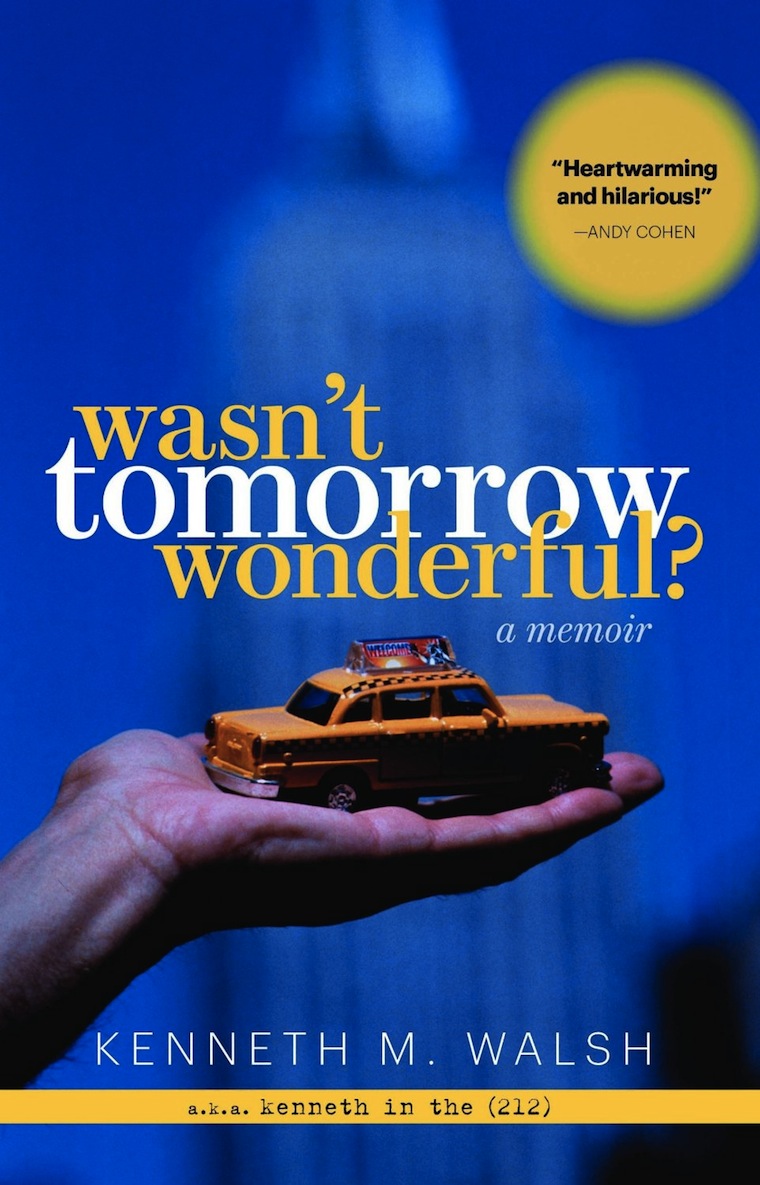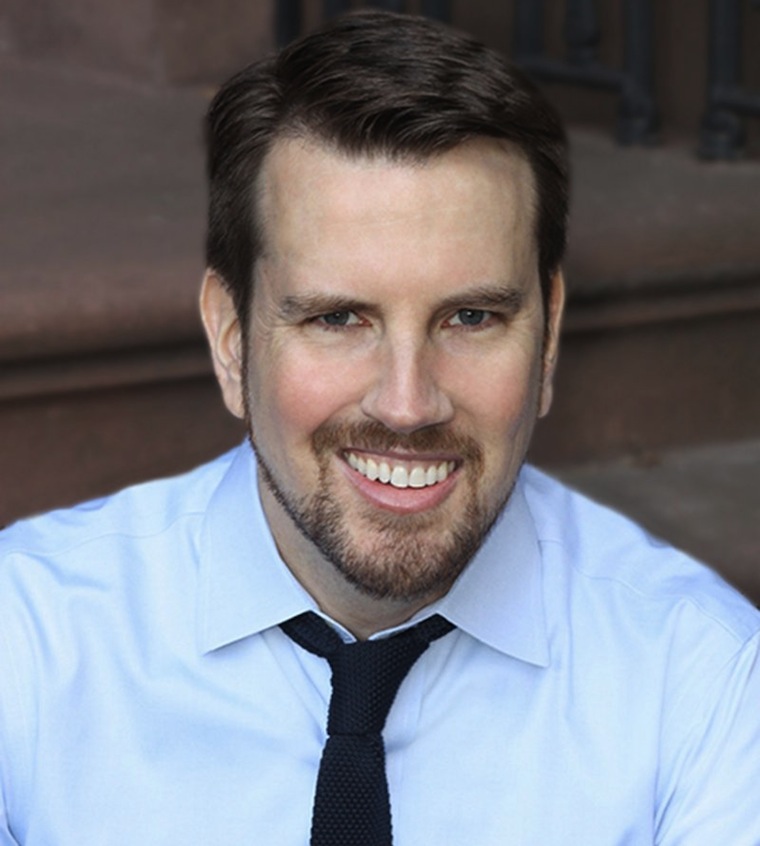In this Age of the Internet, it’s easy to think that we know everything about everyone, particularly someone who has an immensely popular blog. Kenneth M. Walsh, of Kenneth in the (212) fame, is one of those online-celebrities who in many ways feels like an old friend, at least for those of us who have followed him religiously since he exploded onto the scene. Yet you never really know someone until you read their memoir, and Mr. Walsh offers scintillating tidbits of the humorous and twisting tale that brought him to the enchanting metropolis of New York in last year’s ‘Wasn’t Tomorrow Wonderful?’
Struck-through with world-weary wiseass remarks that only a fellow social anxiety-sufferer could love (“I don’t even like to be touched when I’m having sex”) there is much to laugh about and love in his engaging recounting of nights with one-armed men, terrorized toothbrushes, and an almost-unhinged Thomas Roberts. Yet for every hilarious occurrence (and there are many) there is an equally-poignant and touching moment of melancholy. Such depths give this memoir a gravity that grounds the more outrageous wanderings of the occasionally wayward protagonist.
The most audacious and memorable character in the book is Mr. Walsh’s own mother, the indomitable and unsinkable Molly. She is perhaps the mother of all mothers, pulling no punches and delivering every blow with brilliant comic madness and sometimes unbearable pathos. Walsh digs deep with his family memories, and the years-long dance his Mom somewhat awkwardly performs regarding his sexuality is one to which many of us can relate. We want so badly to be loved, and we will forgive almost-all parental transgressions because we have but one mother.
Most moving is Walsh’s own coming to terms with his coming-of-age, especially the exact moment his childhood innocence departed. Not all of us can pinpoint the exact moment that innocence is shattered, but Walsh has it down to a date and time. It was during the Johnny Carson Show, when that evening’s guest introduced a film clip from a gay love story. The audience’s reaction – jeers and boos and open hostility – was what rang in young Kenneth’s ears, and suddenly the notion of shame was born. It’s something that resonates with most gay boys and girls, and this is the part of the book that struck me most deeply.
“My ability not to be painfully-self-conscious around people ended that night,” he writes. “My self-doubt and increasing sense of worthlessness – the whole nation would turn hostile and boo me if they knew who I really was – became who I was. All a stranger had to say to me was “Hi,” and I’d instantly turn beet red and my heart would start racing out of control.”
When Walsh revisits the clip years later, he is struck both by his somewhat overblown recollection of the audience response, but also by something more: “Despite the fact that it wasn’t “as bad” as I remembered, it still made me sick all over again, thinking about that isolated fourteen-year-old boy watching television that night and getting booed over his shameful secret. If it seems like almost nothing now, that’s just further proof that it’s the little things that can affect people so much, especially children. Things are hardly perfect for gay youths today. Still, I’m glad something this blatant would be unlikely to happen again.”
As in Andy Cohen’s recent diary, New York City comes alive as Kenneth’s ultimate true love and salvation, and their decade-long-and-going-strong relationship evolves from distant admiration to rocky-rodent courtship to torrid yet stalwart sustenance. The final post-Studio-54-party scene is the stuff New York dreams are made of ~ wistful, romantic, and sweeter than expected. It ties up the long and winding way Walsh wound up in the city of his dreams, and leaves things full of promise and further adventure – the way the best books always end.
Back to Blog

